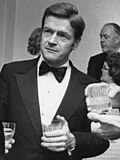Campaign
After Flynn's decision not to run, Murphy was the early frontrunner due to her strong name recognition and a solid base of liberal support. In July 1989, she led Bellotti 42% to 18% in a Boston Globe poll. That November, Bellotti had come within 2% of Murphy in another Boston Globe poll. [4]
In January, Silber entered the race and Bellotti ran his first wave of television ads. By this point, Bellotti had taken the lead in the race, polling 38% to Murphy's 20% and Silber's 16%. [4]
The Democratic Convention was held on June 2, 1990, at the Springfield Civic Center. On the first ballot, Bellotti received 42.9% of the vote, Murphy received 37%, Silber received 15.5%, and Flood received 4.5%. Silber's 15.5% gave him enough votes to remain on the ballot. On the second ballot, Bellotti won the convention with 51%, Murphy received 40%, and Flood received 8.5%. Flood was not able to stay on the ballot as he did not receive the necessary 15%. [5]
Murphy's campaign appeared to be badly hurt by the public perception that she was close to the unpopular Dukakis and therefore tried to make a break with the Dukakis Administration. [4] [6] Dukakis twice postponed a trade mission to Europe because Murphy hinted at a news conference that she would execute her own economic plan while serving as acting governor. [6] After the incident, Murphy's unfavorable rating rose to 49% in a Boston Globe/WBZ-TV poll, compared to 38% a month earlier. [4]
A week before the primary, Evelyn Murphy dropped out of the race and threw her support to Bellotti. [7]







